Developing the capital Hanoi "Cultured - Civilized - Modern" is a particularly important political task in the strategy of building and defending the Fatherland_Source: nhiepanhdoisong.vn
The need for construction Civilized, modern, effective and efficient capital administration
In the context of the country entering a breakthrough development stage, with the aspiration for strength and deep international integration in the spirit of the Resolution of the 13th National Party Congress, the role of the capital Hanoi - the heart of the whole country, the political , economic, cultural and social center becomes increasingly crucial. Our Party has affirmed: "Developing the capital Hanoi "Cultured - Civilized - Modern" is a particularly important political task in the strategy of building and defending the Fatherland" (1) . Therefore, building a civilized, modern, effective and efficient administration is not only an urgent task, but also a decisive factor for the sustainable development and position of the capital Hanoi in the new era.
It is an administration that focuses on people and businesses, provides better public services, solves people's problems more quickly and effectively, thereby improving the quality of life of the people of the capital. An effective administration with good management and operation capacity will contribute to maintaining political stability, ensuring social order and safety, and building a beautiful image of the capital Hanoi in the eyes of international friends. A transparent and smooth administrative apparatus also creates favorable conditions to attract investment, promote production and business activities, and develop the economy and society of the capital and the whole country.
To build a civilized, modern, effective and efficient administrative system for the Capital, the following requirements must be met:
Civilization - administration for the people
Service culture: Thoroughly grasp the viewpoint that “people are the root”, build a team of officials, civil servants and public employees of the Capital who are honest, dedicated, professional, and truly “servants of the people”. Every public service act must demonstrate respect, listening, and wholeheartedly resolving the legitimate needs of the people and businesses quickly and conveniently.
Transparency and accountability: Strictly implement regulations on publicity and transparency in state management activities, from processes and procedures to planning and policies. Enhance accountability of all levels, sectors and individuals in the process of performing public duties, ensuring the people's right to supervision ( 2) .
Public ethics: Strengthen discipline, administrative discipline, promote revolutionary ethical standards and public ethics in the spirit of Conclusion No. 01-KL/TW, dated May 18, 2021, of the Politburo, "On continuing to implement Directive No. 05-CT/TW dated May 15, 2016, of the 12th Politburo, on promoting the study and following of Ho Chi Minh's ideology, morality and lifestyle". Resolutely fight against corruption, negativity, waste, bureaucracy, harassment, and strengthen people's trust in the state apparatus.
Standard communication: Building a cultural, polite, respectful administrative communication environment, creating consensus and cooperation between state agencies and people, businesses and within the administrative system (3) .
Modernity - Seizing the Opportunities of the Fourth Industrial Revolution
Comprehensive digital transformation: Effectively implement Resolution No. 57-NQ/TW, dated December 22, 2024, of the Politburo, "On breakthroughs in science, technology, innovation and national digital transformation", Resolution No. 18-NQ/TU, dated December 30, 2022, of the Hanoi Party Committee, on "Digital transformation, building a smart Hanoi City by 2025, with a vision to 2030". Prioritize the provision of high-level, smart, personalized online public services, bringing convenience and real efficiency to people and businesses.
Application of advanced technology: Proactively research and apply achievements of the Fourth Industrial Revolution such as artificial intelligence (AI), big data, internet of things (IoT)... to smart urban management, forecasting, policy making, monitoring and evaluating the performance of the administrative system.
Smart city development: Synchronously deploy solutions to build and effectively operate smart management systems in key areas such as transportation, energy, environment, healthcare, education, etc., improving people's quality of life and urban management efficiency (4) .
Modernize processes and working methods: Apply advanced management models, streamlined and flexible working processes, based on data and evidence to make accurate and timely decisions, improve productivity and efficiency of administrative apparatus.
Effectiveness - ensuring discipline and rule of law
Strong institutional capacity: Continue to perfect the institutional and legal system of the Capital, especially effectively implementing the Law on the Capital (amended) in 2024, ensuring consistency, unity, feasibility, meeting the requirements of rapid and sustainable development of the Capital in the new period.
Strict enforcement: Improve the capacity to organize and supervise law enforcement, ensure that all policies of the Party and State, and decisions of the city government are implemented synchronously, effectively, and put into practice.
Clear decentralization and delegation of authority: Strictly implement the principles of decentralization, delegation of authority, and authorization associated with strengthening inspection and supervision, ensuring unity in direction and administration, and promoting initiative and creativity at all levels and sectors (5) .
High-quality human resources: Focus on building a team of cadres, civil servants and public employees of the Capital with strong political will, pure moral qualities, deep professional qualifications, effective implementation capacity, daring to think, daring to do, daring to take responsibility for the common interests of the Capital and the country (6) .
Efficiency - optimizing resources, creating development
Streamlining the apparatus: Implementing Resolution No. 18-NQ/TW of the 12th Party Central Committee on a number of issues of continuing to innovate and reorganize the organization The apparatus of the political system is streamlined and operates effectively. force and efficiency. Review and arrange administrative organizations in the direction of reducing focal points, reducing intermediate levels, and overcoming overlapping functions and tasks.
Simplify administrative procedures: Continue to promote administrative procedure reform, cut down and simplify cumbersome procedures that cause inconvenience to people and businesses, reduce compliance costs, and create an open and favorable investment and business environment.
Management by results: Strongly transform management methods from process-based to output-based and work efficiency-based management, enhancing autonomy and self-responsibility of agencies, units and individuals.
Efficient use of resources: Manage and use public resources (finance, land, public assets, etc.) economically and effectively, ensuring the best service for the development of the Capital and improving the quality of life of the people.
The administrative system of the Capital that meets the above requirements not only effectively solves internal problems, but also plays the role of "development creation", proactively removing bottlenecks, creating a favorable, transparent, and fair investment and business environment to attract resources and promote innovation. At the same time, it has the ability to quickly adapt to fluctuations in the domestic and international situation, leading and spreading development to the Capital region and the whole country.
Building a strong administrative system of the Capital to meet the requirements of the new era is an important political task, requiring close leadership and direction of the City Party Committee, People's Council, People's Committee, the synchronous participation of the entire political system, the continuous efforts of the staff, civil servants and public employees, and the active participation and effective supervision of the people and the business community. In that context, promoting the "role" of each civil servant and public employee of the Capital is a decisive factor in building a truly civilized, modern, effective and efficient administrative system.
Staff of the Hanoi City Public Administration Service Center enthusiastically guide people through administrative procedures_Photo: hanoimoi.vn
Promoting the leadership role of each civil servant and public employee is a core factor.
“Leadership role” - proactive thinking of staff
In traditional perception, the concept of “leadership” is often identified with management and executive positions. However, thoroughly grasping the spirit of the 13th National Party Congress Resolution on promoting socialist democracy and the people's role as masters (7) , in the context of building an increasingly perfect socialist rule-of-law state, the “leadership role” needs to be understood in a more comprehensive and profound way. It is the manifestation of a sense of responsibility, pioneering spirit, exemplary character, self-control, proactiveness, creativity, daring to think, daring to do, daring to take responsibility before the Party, the State and the people within the scope of assigned duties and tasks of each civil servant and public employee.
In the book “The 7 habits of highly effective people”, author Stephen R. Covey promoted proactive thinking: this habit encourages each individual to take responsibility for their life, choosing to respond positively to every situation instead of blaming the circumstances (8) . This is considered one of the seven important keys to creating success for each person as well as the development of a civilized, modern society. Therefore, each civil servant and public employee of the Capital, when promoting the “leadership role” in their work position, needs to have the following factors:
Proactive and creative for common goals: Actively research and propose innovative solutions, improve working processes, enhance work efficiency, and contribute to the successful implementation of political tasks of the agency, unit and city.
Exemplary in performing tasks: Uphold a sense of responsibility, be dedicated to work, proactively overcome difficulties, pursue goals to the end to achieve the highest results, and constantly improve oneself in terms of expertise and professionalism.
Solidarity and cooperation for development: Willing to share experiences, support colleagues, build a united and strong collective, create a democratic and open working environment, and promote combined strength.
Dedicated to serving the people: Always put the interests of the Party, State and people first, have a respectful attitude, listen, promptly and effectively resolve the legitimate requests of people and businesses, and strengthen the close relationship between the government and the people.
Integrity and compliance with the law: Uphold revolutionary ethics, practice integrity and honesty, strictly comply with discipline, administrative discipline and the law of the State, resolutely fight against negative manifestations, corruption and waste.
Continuously study and improve qualifications: Clearly recognize the increasing requirements of innovation and international integration, proactively study political theory, improve professional qualifications, expertise, and work skills to meet the requirements of the new situation.
Promoting the “leadership role” of each civil servant and public employee is not only a personal requirement but also a key and decisive factor for the success of the construction of a civilized, modern, effective and efficient administrative system of the Capital. When each cadre, party member, civil servant and public employee deeply understands the role of mastery, promotes the spirit of autonomy, creativity, dares to think, dares to do, dares to take responsibility, it will create a strong motivation from within, arouse the great potential of the team, overcome all challenges to successfully complete the assigned tasks. In addition, the initiative and responsibility of each civil servant and public employee in performing public duties will ensure that work is resolved quickly and accurately right from the first step, minimizing delays and shirking of responsibility, and improving the effectiveness of implementing policies and guidelines of the Party and State. Encouraging creativity and process improvement from those directly implementing will help optimize resources, save time, reduce costs, improve labor productivity and operational efficiency of the administrative apparatus.
A high sense of responsibility, dedicated service attitude, and integrity of each civil servant and public employee will create the image of a friendly, close administration that respects and listens to people's opinions, strengthening people's trust in the leadership of the Party and the management of the State. A proactive and cooperative working environment also contributes to building a civilized and professional office culture.
In the context of the Fourth Industrial Revolution and new requirements from the Law on the Capital (amended) in 2024, a team of civil servants and public employees with leadership thinking will be more flexible in approaching and applying scientific and technological advances, proactively adapting to changes, and proposing creative solutions to solve newly arising problems.
Unleashing strategic leadership capacity: When cadres, civil servants and public employees at all levels are proactive, responsible and complete their work well, senior leaders will have more time and resources to focus on strategic planning, building macro policies, and ensuring the sustainable development of the capital.
Deeply recognizing and strongly promoting the leadership role of each civil servant and public employee of the Capital is one of the central tasks and key factors to realize the goal of building a truly civilized, modern, effective and efficient administrative system of the Capital, meeting the increasingly high requirements of the cause of building and defending the Fatherland in the new development stage.
Solutions to promote the leadership role of each civil servant and public employee in the capital
To successfully achieve the goal of building a civilized, modern, effective and efficient administrative system of the Capital, promoting the leadership role of each civil servant and public employee needs to be implemented synchronously and drastically, with the following solutions:
One is to raise political awareness and public service responsibility.
Strengthening ideological and political work: Strengthening the dissemination of the Party's guidelines and policies, the State's policies and laws, especially resolutions and directives on Party building, building a clean and strong political system and improving the effectiveness and efficiency of the State apparatus. Each cadre, civil servant and public employee needs to be deeply aware of their role and responsibility in the cause of building and developing the Capital.
Building awareness of serving the people: Educate and foster the spirit of serving the people, the sense of responsibility towards the Party, the State and the people of every cadre, civil servant and public employee. Must truly be a representative of the will, aspirations and legitimate interests of the people, wholeheartedly and wholeheartedly resolve work, not cause trouble or harassment.
Arouse the desire to contribute: Create an environment for each civil servant and public employee to clearly perceive the common development goals of the unit and the city, thereby arousing the spirit of initiative, creativity, daring to think, daring to do, daring to take responsibility, and being ready to devote oneself to the cause of building the Capital to become increasingly rich, beautiful, civilized, and modern.
Second, comprehensively develop leadership and management capacity.
Focus on comprehensive training and development: Organize systematic training and development programs, not only focusing on expertise and profession but also paying special attention to equipping soft skills, critical thinking, complex problem solving ability, self-leadership, team leadership and change management skills.
Building a core team of qualified and capable cadres: Discovering, nurturing and promoting cadres, civil servants and public employees with good moral qualities, leadership and management capacity, innovative thinking, daring to make breakthroughs, creating a source of high-quality cadres for the future.
Delegation and clear decentralization: Boldly decentralize and delegate authority with specific responsibilities, creating space for civil servants and public employees to proactively perform their tasks, promote creativity and self-responsibility. At the same time, strengthen the mechanism for inspection and supervision of the exercise of power.
Create a regular learning environment: Encourage and facilitate civil servants and public employees to self-study, research, participate in seminars and scientific forums, exchange experiences, update new knowledge, and meet the requirements of the new situation.
Rotate, mobilize and challenge cadres: Implement planned rotation and mobilization of cadres, creating conditions for cadres to experience many working positions, practice political qualities, and improve comprehensive capacity. Assign difficult and breakthrough tasks so that cadres have the opportunity to demonstrate their leadership and political qualities.
Third, create a democratic, innovative and collaborative working environment.
Promoting the exemplary role of leaders: Party secretaries and heads of agencies and units must truly be exemplary leaders and commanders in all aspects, have strategic vision, and have the ability to inspire, motivate and lead the collective to excellently complete tasks.
Innovation in leadership and management thinking: Shift from command and administrative management methods to leadership methods through persuasion, setting an example, creating consensus and promoting collective strength. Leaders at all levels need to listen to the opinions of subordinates, encourage the participation of civil servants and public employees in the planning and decision-making process.
Building a civilized and professional public service culture: Creating an open, trusting, respectful working environment, encouraging cooperation, sharing of information and experience among colleagues. Promoting team spirit, aiming towards common goals.
Establish an effective feedback mechanism: Build a multi-dimensional, regular, transparent feedback mechanism on the work performance and leadership performance of each civil servant and public employee. Timely recognize, commend, and reward positive contributions and the spirit of innovation and creativity.
Fourth, perfecting the system of synchronous mechanisms and policies.
Develop comprehensive staff evaluation criteria: Complete the system of criteria for evaluating civil servants and public employees in a scientific, objective and transparent manner, with special attention paid to leadership and management capacity, proactiveness, creativity, responsibility and effectiveness in performing tasks. Evaluation results must be an important basis for planning, appointing, training, fostering, arranging and using staff.
Promote administrative reform: Continue to review, reduce and simplify administrative procedures towards openness, transparency and convenience for people and businesses. Create conditions for civil servants and public employees to promote their potential and leadership role in performing public duties.
Strong application of science and technology: Resolutely deploy the digital transformation process in administrative management activities, build e-government, towards digital government. Equip civil servants and public employees with digital knowledge and skills to be able to adapt and lead this process.
Perfecting the treatment and reward mechanism: Building a treatment mechanism worthy of the capacity and contribution of civil servants and public employees. Timely and appropriately rewarding individuals and groups with outstanding achievements, many initiatives and solutions that bring high efficiency in work.
Fifth, strengthen inspection, supervision and administrative discipline.
Strengthen inspection and supervision of the implementation of the Party and State's policies and guidelines, legal regulations and the city's regulations on personnel work and public service activities. Resolutely fight against corruption, negativity and waste. Strictly handle irresponsible acts that cause trouble for people and businesses, affecting the reputation of the capital's administration. Promote the people's supervisory role, create conditions for people to participate in supervising the activities of the administrative apparatus and the team of civil servants and public employees through information channels and social criticism.
The synchronous and effective implementation of the above solutions will create a strong change in the awareness and actions of each civil servant and public employee of the Capital, contributing to improving the operational efficiency of the state administrative apparatus. Arousing and promoting the leadership potential of each civil servant and public employee is not only a solution to improve the quality of human resources, but also a solid foundation for building a truly people-oriented administrative system of the Capital, creating sustainable development for the Capital and the country in the new development stage./.
----------------------------
(1) Resolution No. 15-NQ/TW, dated May 5, 2022, of the Politburo, "On the direction and tasks of developing Hanoi Capital to 2030, with a vision to 2045".
(2) See: Associate Professor, Dr. Duong Thi Lieu - Dr. Nguyen Thi Huong: "Improving transparency and accountability of local authorities at all levels in Hanoi city", State Management Magazine , https://www.quanlynhanuoc.vn/2025/04/14/nang-cao-su-minh-bach-va-trach-nhiem-bao-cao-giai-trinh-cua-chinh-quyen-dia-phuong-cac-cap-thanh-pho-ha-noi/, April 14, 2025.
(3) See: Ngoc Hai: "Building public service culture in current state administrative agencies", Electronic Communist Magazine , https://www.tapchicongsan.org.vn/web/guest/ky-nguyen-moi/-/2018/815968/view_content
(4) See: Minh Phu: “Application of AI in urban traffic management in Hanoi”, Nhan Dan Electronic Newspaper , https://nhandan.vn/ung-dung-ai-trong-quan-ly-giao-thong-do-thi-ha-noi-post868561.html, March 29, 2025.
(5) See: Tran Hoa Le: “Decentralization and delegation of power must go hand in hand with inspection and supervision”, Electronic Communist Magazine , https://www.tapchicongsan.org.vn/web/guest/chinh-tri-xay-dung-dang/-/2018/995303/phan-cap%2C-phan-quyen-phai-di-doi-voi-kiem-tra%2C-giam-sat.aspx#, October 20, 2024.
(6) See: Hoang Thi Lan Anh: "Solutions to improve the political capacity of the contingent of civil servants and public employees of Hanoi city to meet the requirements of tasks in the new era", State Management Magazine , https://www.quanlynhanuoc.vn/2025/03/21/giai-phap-nang-cao-ban-linh-chinh-tri-doi-ngu-can-bo-cong-chuc-vien-chuc-thanh-pho-ha-noi-dap-ung-yeu-cau-nhiem-vu-trong-ky-nguyen-moi/, March 21, 2025.
(7) Guiding viewpoint: promote socialist democracy, the combined strength of the entire political system and of Vietnamese culture and people, foster people's strength, improve the quality of human resources, have breakthrough mechanisms to attract and make good use of talents, promote innovation, strongly apply science and technology, especially the achievements of the fourth industrial revolution, creating a strong driving force for rapid and sustainable development.
(8) See: Stephen R. Covey: The 7 habits of highly effective people, FranklinCovey.
Source: https://tapchicongsan.org.vn/web/guest/thuc-tien-kinh-nghiem1/-/2018/1093702/phat-huy-vai-tro-lanh-dao-cua-can-bo%2C-cong-chuc%2C-vien-chuc%2C-xay-dung-nen-hanh-chinh-thu-do-van-minh%2C-hien-dai%2C-hieu-luc-va-hieu-qua.aspx



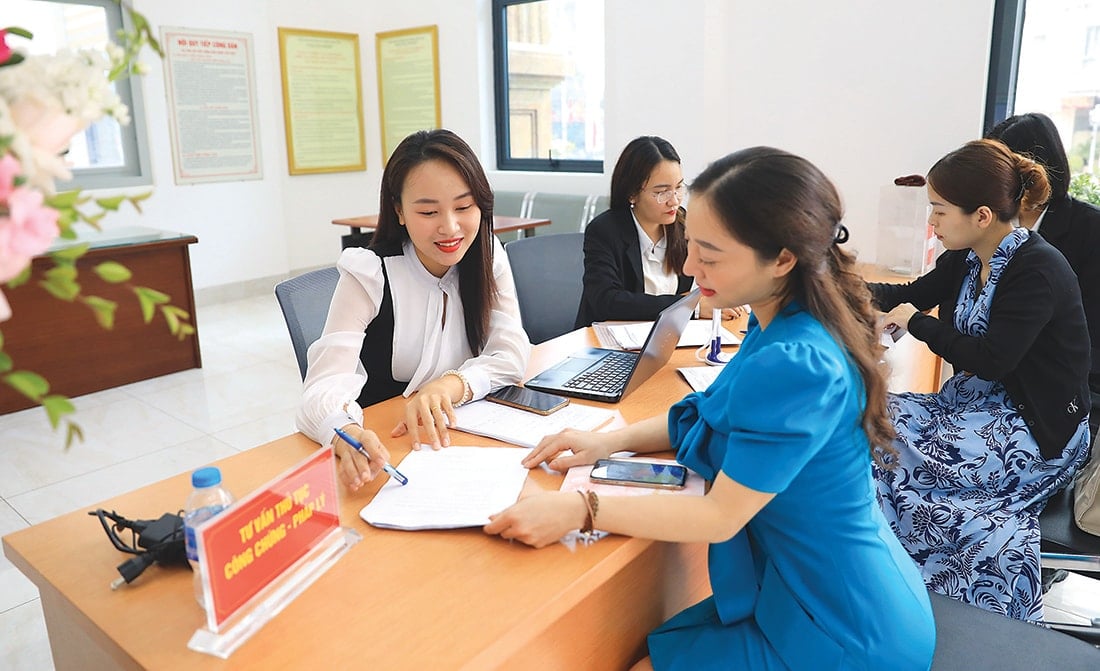






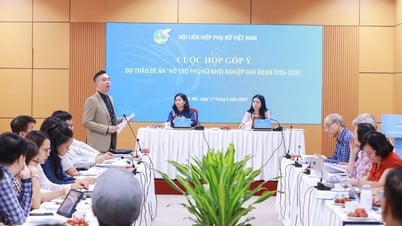

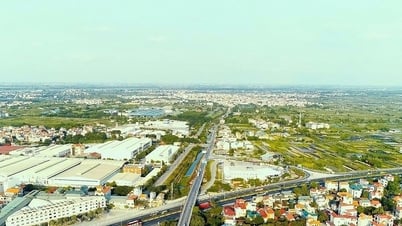

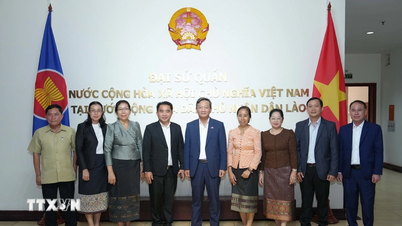

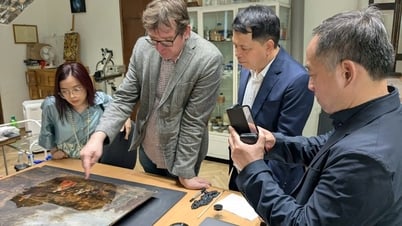







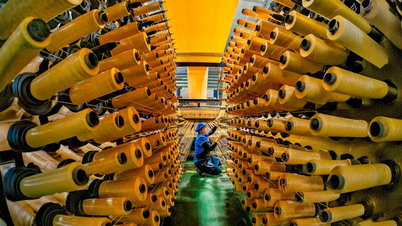
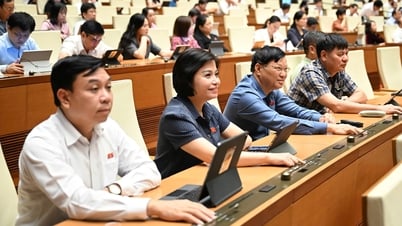

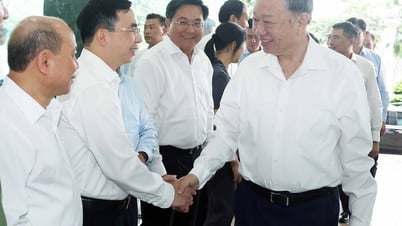
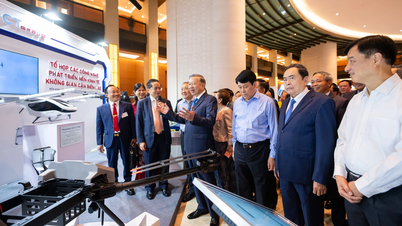
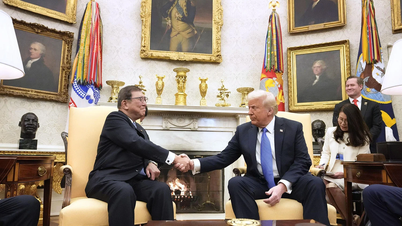




















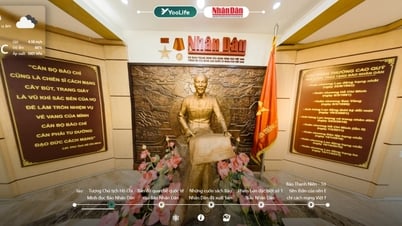


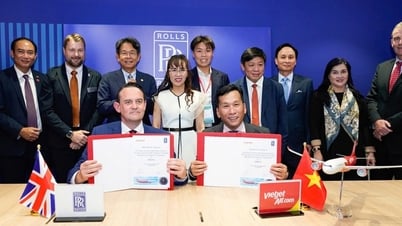

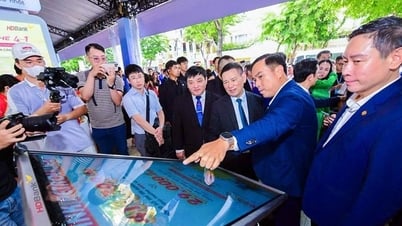

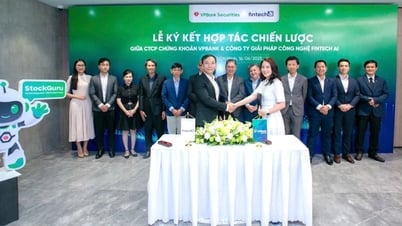

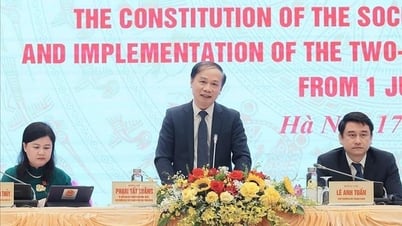





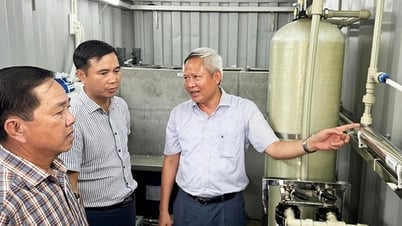

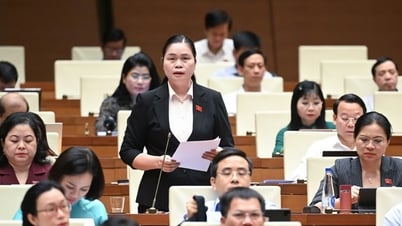



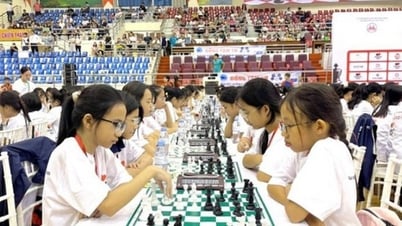






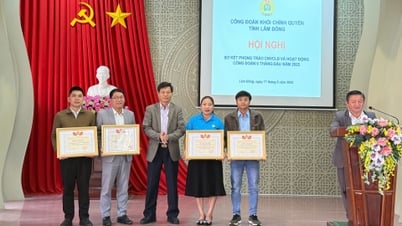

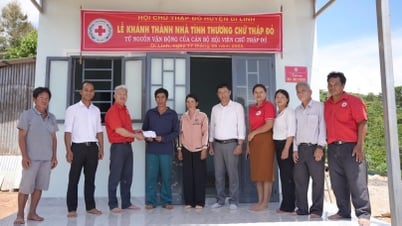
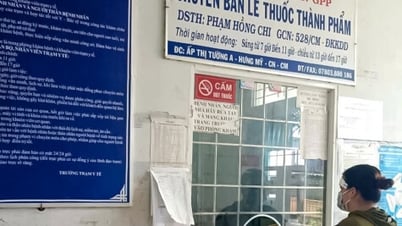














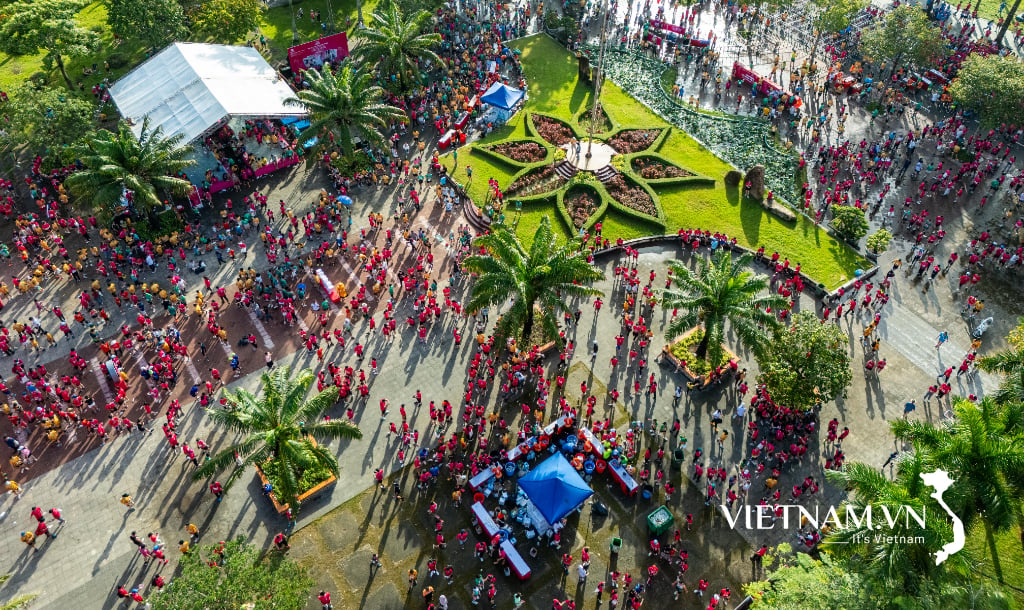


Comment (0)